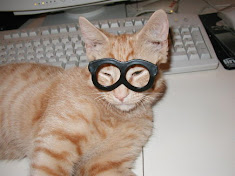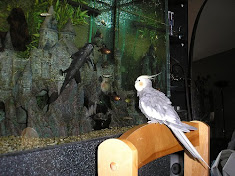 |
| Reflection in a Horse's Eye by digizen |
Horses are also colour blind, they don't see colours like we do and they perceive the world as a mosaic of different light reflections. They do however notice movement instantly and can react accordingly, much to the dismay of the inexperienced rider! Green or inexperienced horses respond to sudden movement by shying or bolting. If something moves suddenly into their peripheral field of vision this will usually cause horses to bolt.
Horses, with their wide field of vision, have only two blind spots: that which is directly in front or behind them. When approaching a horse from the rear you should talk to him to avoid startling him. When riding through tricky terrain it's always a good idea to allow your horse free rein so he can see what's under his feet.
Your horse's eyes are very sensitive to light and this is why young or inexperienced horses seem nervous when you are trying to load them into a horsebox. Their eyes need to adjust to the darker environment of the horsebox so they can see properly. Entering a horsebox is akin to entering a dark cave and your horse's reluctance to do so is what saved its ancestors - caves housed dangerous predators!
Understanding your horse's vision can help you understand why your horse reacts in various situations; a lot of the time inexperienced horse owners mistakenly believe their horse is intentionally acting up when the real reason for their horse's behaviour is related to the his vision and way of seeing the world.
Author Resource: Stal Amani understands the importance of matching the right horse to the right rider. We have a selection of dressage and show jumpers for sale as well as ponies and if you don't find what you're looking for we can help source the perfect horse for you. Stal Amani can sell your horse through an extensive and trusted network. We are sensitive to the fact that you would like your horse to go to the best possible home http://www.stalamani.com
Article From Pet Article World



0 comments:
Post a Comment